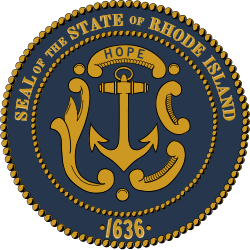| |||||||||||||||||
| |||||||||||||||||
Beeckman: 40–50% 50–60% 60–70% 70–80% 80–90% >90% Archambault: 40–50% 50–60% | |||||||||||||||||
| |||||||||||||||||
| Elections in Rhode Island |
|---|
 |
The 1918 Rhode Island gubernatorial election was held on November 5, 1918. Incumbent Republican Robert Livingston Beeckman defeated Democratic nominee Alberic A. Archambault with 53.11% of the vote.



